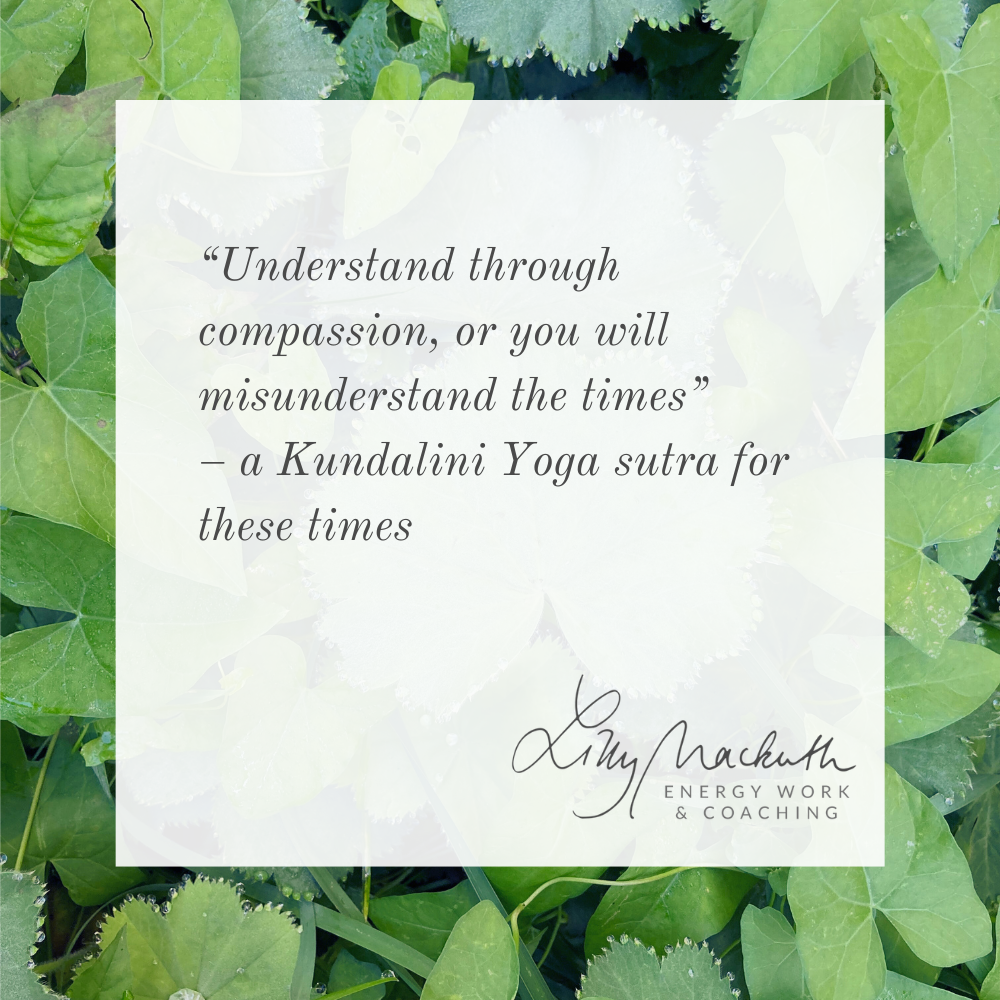
Years ago, during my Kundalini Yoga Teacher training, we were given five sutras (“words to live by”) to help guide us through these times. One of those sutras said, “Understand through compassion, or you will misunderstand the times.” It took me a while to understand its full meaning.
Compassion is a parent saying to their child, “Darling, I know you think you want to stay up late, but you can barely keep your eyes open – can you feel that? It means your body needs some rest. Come on, let’s get you to bed.”
Compassion is a mighty tree gifting some love to a weary human sitting in its shadow – even if said human doesn’t understand the gift.
Compassion is an inner realisation knowing that you will have to listen what your heart has to say – even if it hurts – if you want to truly enjoy being yourself.
My October calendar has some appointments available – if you’d like to explore the ways in which the energy of Compassion can help you get through these wild times, book yourself a spot, via this link. Talk soon!
//
Während meiner Ausbildung zur Kundalini Yogalehrerin bekamen wir fünf so genannte Sutras (Leitsprüche) an die Hand, die uns dabei helfen sollten, gut durch die jetzigen Zeiten zu kommen. Eines dieser Sutras war, “Verstehe durch Mitgefühl, oder Du wirst die Zeiten missdeuten.” Und es hat gebraucht, bis ich diesen Leitspruch komplett verstanden hatte.
Mitgefühl ist ein Elternteil, der zu seinem Kind sagt, “Hase, ich weiß, Du denkst, Du würdest gern noch wachbleiben, aber merkst Du, dass Du Deine Augen kaum noch offen halten kannst? Das bedeutet, dass Dein Körper Ruhe braucht. Komm, jetzt geht’s ins Bett.”
Mitgefühl ist ein Baum, der einem erschöpften Menschen, der in seinem Schatten sitzt, Liebe schenkt – auch wenn dieser Mensch kein Gespür dafür hat.
Mitgefühl ist die innere Erkenntnis, dass Du dem Schmerz in Deinem Herzen zuhören musst – auch wenn’s erstmal weh tut – wenn Du Dich in Dir selbst wohlfühlen möchtest.
In meinem Oktober-Kalender sind ein paar Termine frei – wenn Du gern herausfinden möchtest, wie das Thema Mitgefühl Dir durch diese wilden Zeiten hindurch helfen möchte, buch Dir gern über diesen Link eine Session. Bis bald!


